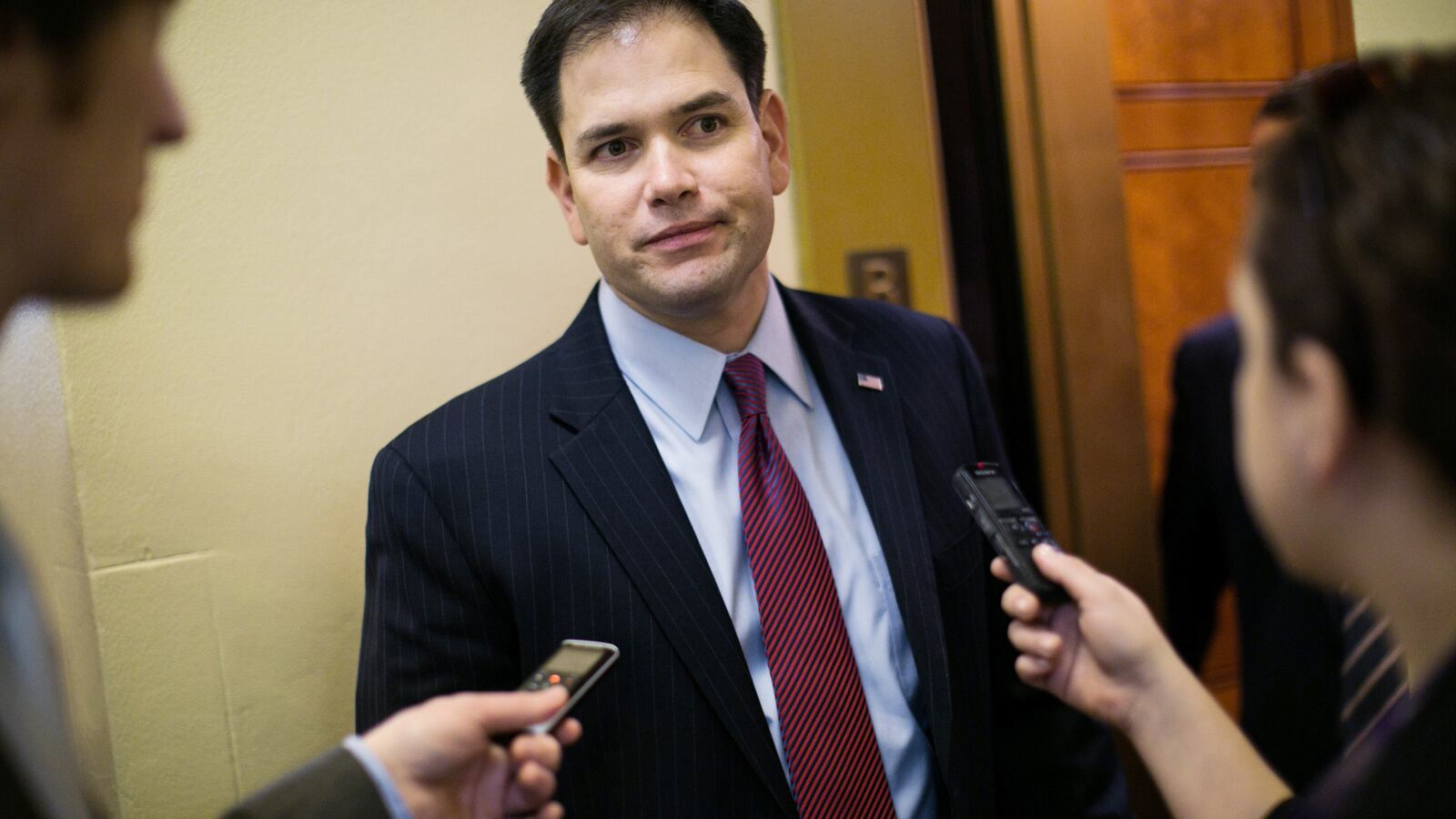Why were we all talking about Marco Rubio yesterday? Because Marco Rubio made sure of it. His little intervention into the immigration bill was designed to achieve a couple mostly obvious objectives: to make sure Chuck Schumer isn’t the one doing all the public framing of the issue, and to say to the Beltway crowd, or try to say, that he’s the one driving this train. But it was an odd incursion too. Rubio actually deserves credit for some of the steps he’s taken on immigration so far. But what he said over the weekend sounded for all the world like somebody who really secretly wants to kill the bill. He may or may not. But the one thing he definitely does not want to kill is his presidential chances, and it seems he’s figured that the way to do that is to keep his options on immigration open. If passage will help, he’ll push for that. But if it turns out that his party hasn’t changed, doesn’t want to change, that the famous outreach program meets resistance from the in-reach caucus—well then, adios.

To review. It was a big deal over the weekend when the Chamber of Commerce and the AFL-CIO reached an agreement on the temporary and low-skill worker program. That was leaked, probably by the liberal side. Then Schumer—and others, including Republicans—went on the Sunday shows to talk about how the deal among the Senate Gang of Eight that’s been negotiating a bill was basically done.
And that was the moment Rubio chose to release a letter to Senate Judiciary Chairman Pat Leahy to say let’s hold our horses. He wrote: “excessive haste in the pursuit of a lasting solution is perhaps even more dangerous to the goals many of us share … A rush to legislate, without fully considering all views and input from all senators, would be fatal to the effort of earning the public’s confidence.”
Translated from the Senate, what that means is, “I’m not for this yet.” He spoke elsewhere of full hearings and lots of amendments. Everybody who follows the Senate knows that the best way to kill a piece of legislation in the Senate is to have full hearings and lots of amendments. By the time 100 senators finish kneading the dough of a piece of legislation it’s been turned into something a starving child wouldn’t eat. Rubio knows this.
So he’s trying to do two things here at the same time, things that are completely at odds with each other. On the one hand he wants to be seen as the leader, or at least as the Republican leader, on immigration reform. He wants the spotlight in a big way. Benjy Sarlin of TPM made the keen observation yesterday that this is now the second time in this process that Rubio is “once again setting himself up to claim credit for winning concessions that no one opposed in the first place.”
On the other hand, he wants to try to protect himself from being damaged too badly if reform collapses. He still isn’t sure, no one is sure, whether the hard-shell elements in the GOP are going to rise up against reform when crunch time hits. No one really knows what the Tea Party view will be (and Rubio of course comes from those swamps). No one yet knows how this border security as a prerequisite or “trigger” for a path to citizenship is going to look, or whether this trigger will even be in the final legislation, and this could be an immense sticking point, turning Limbaugh and the base against reform. So just in case there’s an eruption, Rubio wants to be able to say he was against it from the start.
Ever seen The Great McGinty, the fantastic Preston Sturges film? Akim Tamiroff played the back-room political machine boss. Brian Donleavy was his hand-picked governor. After Donleavy’s first term and a few scandals, public sentiment turned against the machine and toward the reformers. Some aide fretted to Tamiroff that this meant big trouble, but the boss was nonchalant. “It’s not a problem,” he said, “I run the reformers too!”
Rubio is the Akim Tamiroff of immigration reform. And the important point here is not about Rubio or his political postures or his presidential ambitions. The important point, in a country where 1,000 people are deported every day, is the legislation. And Rubio’s posturing tells me the legislation is still in trouble. Last week I’d have put the chances of failure at just above 50 percent. This week I’d put them at just below 50 percent. Things have improved a little, with the AFL/Chamber deal. But there’s still a farmworkers element to be cobbled together. And politically, there’s still the issue that in the House, John Boehner would almost surely have to break the Hastert Rule again to pass a path to citizenship.
Yes, yes; Republicans are doomed if they don’t embrace this, so they have to act in a rational manner. Well … yes, they do, eventually. But eventually might not mean just yet. We learned over the weekend that Rubio is apparently thinking exactly that. And by the way we learned something about him over the weekend, too; keeping one’s options open is the opposite of leadership.






